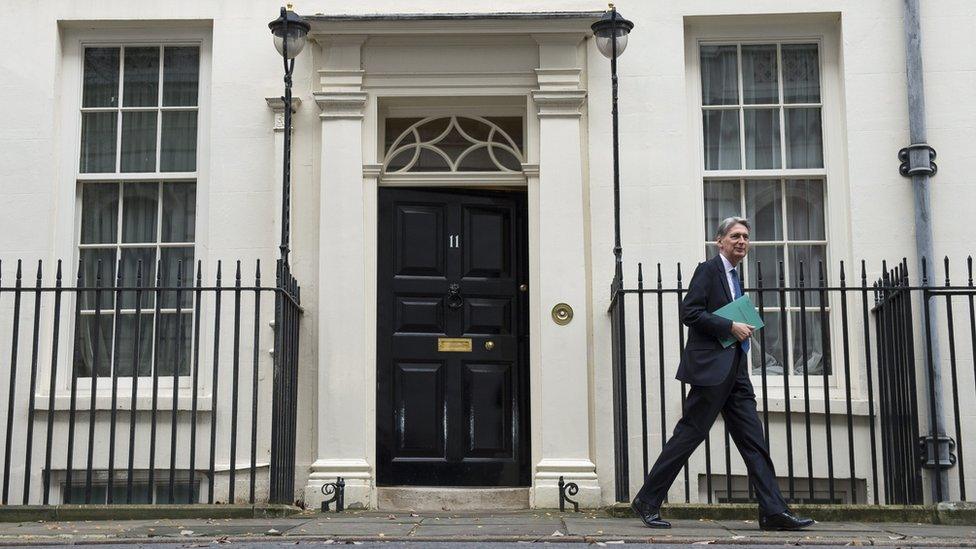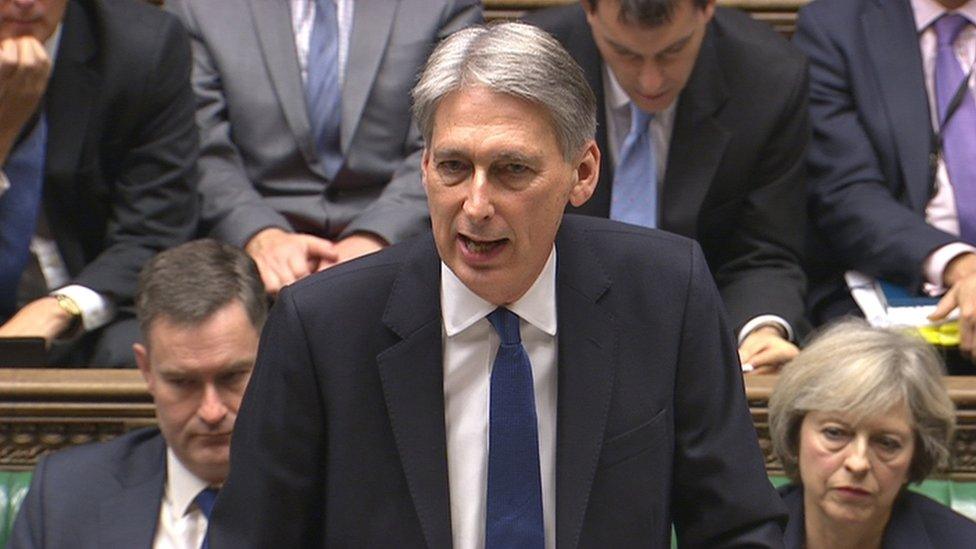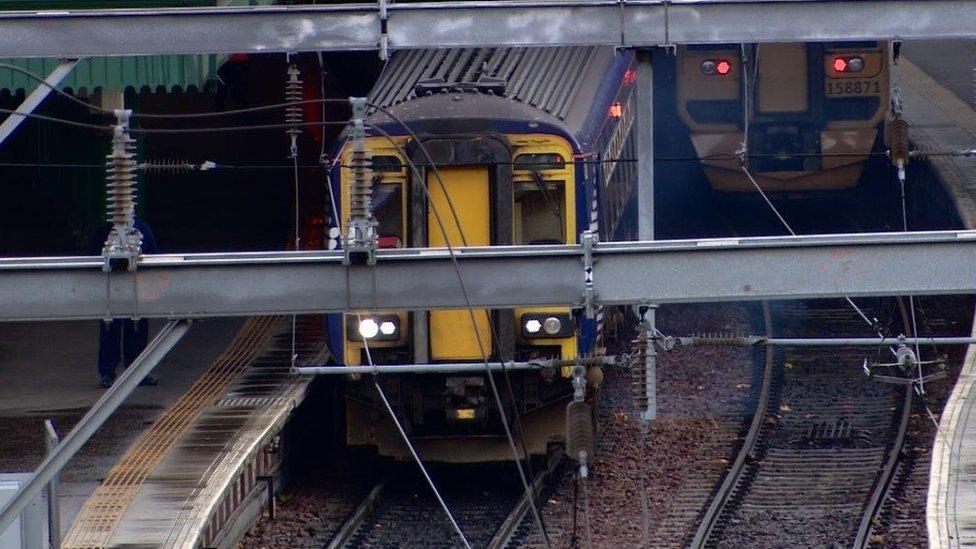Straight man chancellor plays it for laughs
- Published

Michael McIntyre, I feel certain, can rest easy - content that his droll role remains unchallenged by the chancellor.
I doubt, for example, that any of Scotland's fine panto producers are this very moment picking up the phone to Phillip Hammond to offer him a comic role.
Perhaps it was Mr Hammond's pre-existing reputation for dry delivery - but he appeared to feel the need to deploy a few gags. Some, including the one satirising Boris Johnson, were not at all bad.
But, more generally, the presentation was relatively straitlaced. So much so, indeed, that the Chancellor was obliged to ad lib to tell Tory backbenchers that he had just announced good, if complex, news. It was time, he plainly felt, for them to cheer.
So the tone was relatively straightforward, even sombre - despite the gags. And understandably so.
For if Mr Hammond isn't Abanazar - hiss, boo - he isn't Wishee Washee either. He told it as it is. Or, more precisely, he told it as the OBR forecasts suggest, independently, that it will be.
Higher borrowing, lower tax revenues. And above all a growth potential that is some 2.4% lower than it might have been, according to the selfsame OBR, without the Brexit vote.
A referendum outcome which means that the forecasts are described as uncertain - that is, compared to the shot in the dark to which we have become accustomed of late.

In summary, the outlook is for an economy which will be some £122bn worse off by 2020 than previously forecast.
In the face of that, the Chancellor talked of "resilience". A capacity to cope. An ability to rise to the challenge. He was keen to stress the underlying strength of the UK economy. But he did not duck those challenges lying ahead.
In essence, he was trying to pre-empt the prospect of any further weakening in the economic outlook by adding a degree of stimulus while trying, he said, to address a longer-term problem.
The stimulus will come from capital investment, funded by borrowing and by tax changes. That longer-term question is the issue of relatively low UK productivity.
An innovation fund will be deployed in an effort to find solutions to what Mr Hammond depicted as a systemic problem in the UK.
Capital investment and, even more so, any attempt to transform the integral nature of the UK economic structure will take time to produce results in terms of growth and jobs. Perhaps, perhaps, handily coinciding with the forward uncertainty forecast by the OBR.
Shouts of 'rejoice'
For Scotland, ministers had been privately anxious that the entire revenue settlement for the year ahead, 2017/18, might be unpicked, with adverse consequences.
That has not happened - and there will be a degree of relief at Holyrood, albeit the spending constraints remain in place.
Then there is the extra money for capital investment as a Barnett consequential of the spending south of the border. It adds up to £800m - and, when announced, Tory backbenchers joined in a panto-style vocal challenge to the SNP benches.
Rejoice, they appeared to be shouting, rejoice.
To be clear, the capital spending allocated to the Scottish government will be welcomed by ministers. However, they note that it is spread over four years, from the current 2016/17.
They argue further that, taking all the figures into account, there remains a cut of about 8% in capital spending in real terms over the extended period from the Conservatives first entering Downing Street in 2010.
According to Mr Hammond, the UK has embarked upon a new chapter. But will it have a happy ending - or turn out a horror story?
- Published17 November 2016
